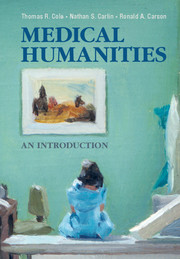Book contents
21 - Religion and Reality
from Part IV - Religion and Medicine
Summary
If the doors of perception were cleansed, everything would appear to man as it is, infinite.
– William BlakeAbstract
This chapter explores the relationship between religious experience and mental health. Beginning with a discussion of the general distrust of religious experience among health care professionals, it examines Sigmund Freud’s reductionistic interpretation of a physician’s religious experience; Andrew Sullivan’s sympathetic interpretation of his own religious experience in the wake of learning that he was HIV+; Fred Frohock’s agnostic interpretation of Helen Thornton’s near-death experience; and William Styron’s metaphorical interpretation of his depression. Then, with a focus on recent scholarship, it suggests some other ways of studying the intersections of religious experience and mental health.
INTRODUCTION
Donald, a divinity school student, was having problems. He was having difficulty concentrating in his classes and was having trouble sleeping. He went to see Sara, a therapist, for help. Things were going well between Donald and Sara until he found out that she was Jewish. Donald, a Lutheran Christian, insisted that if the therapy were to continue Sara would have to convert to Christianity. The director of the day treatment program called Nancy Kehoe, a Roman Catholic nun and a clinical psychologist, to help deal with the impasse between Donald and Sara. Donald explained:
I like Sara, but then I found out that she is Jewish. I can’t work with her because she is not a Christian. I have read a lot of Freud. I know what therapists think of people who have religious beliefs; they think that they are sick or that they should grow up and let go of their childish beliefs. My religion means everything to me.
- Type
- Chapter
- Information
- Medical Humanities , pp. 327 - 339Publisher: Cambridge University PressPrint publication year: 2014



